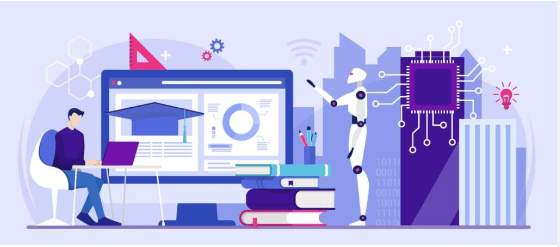
Visits: 3
Introduction:
Artificial Intelligence (AI) has rapidly transformed various industries, and its impact on education and government sectors cannot be understated. From revolutionizing learning experiences to streamlining administrative tasks, AI technologies have opened up new possibilities for both educators and government agencies. In this blog post, we will delve into the exciting realm of AI and explore some of its most promising use cases across education and government sectors.
AI in Education:
- Personalized Learning: AI-powered systems can analyze vast amounts of student data, including their learning styles, strengths, and weaknesses, to deliver tailored learning experiences. Adaptive learning platforms can offer personalized content and feedback, enabling students to learn at their own pace and in a way that suits their individual needs.
- Intelligent Tutoring Systems: AI-driven tutoring systems provide students with individualized support, acting as virtual tutors. These systems can detect areas where students struggle and offer targeted assistance, making learning more efficient and effective. Furthermore, intelligent tutoring systems can adapt their teaching methods based on each student’s progress and learning style.
- Automated Grading: Grading assignments and exams is a time-consuming task for educators. AI algorithms can automate this process by analyzing and assessing student work, providing consistent and objective grading. This not only saves time for teachers but also ensures fair evaluation and feedback for students.
- Intelligent Content Creation: AI tools can assist educators in developing engaging and interactive learning materials. Natural Language Processing (NLP) algorithms can generate educational content, including lesson plans, quizzes, and tutorials. This helps teachers focus on the delivery of the content rather than spending excessive time on content creation.
AI in Government:
- Predictive Analytics: Government agencies can leverage AI-powered predictive analytics to forecast trends, anticipate demand, and make data-driven decisions. This can aid in resource allocation, infrastructure planning, and policy development. For example, AI models can analyze historical data to predict crime hotspots, enabling law enforcement agencies to proactively allocate resources and prevent criminal activities.
- Fraud Detection: AI algorithms can identify patterns and anomalies in large datasets, making them valuable tools for detecting fraudulent activities. Government agencies, such as tax authorities and welfare departments, can employ AI to analyze financial transactions, tax filings, and benefit claims to identify potential instances of fraud and minimize financial losses.
- Natural Language Processing in Customer Service: AI-powered chatbots and virtual assistants can enhance government customer service by automating routine inquiries and providing quick and accurate responses. These virtual assistants can handle citizen queries, assist with form submissions, and provide information on government services, relieving the burden on human customer service representatives.
- Smart Traffic Management: AI-based traffic management systems can optimize traffic flow, reduce congestion, and improve road safety. AI algorithms can analyze real-time traffic data from various sources, such as sensors and cameras, to optimize traffic signal timings, suggest alternative routes, and detect traffic incidents promptly. This technology can enhance transportation efficiency and contribute to sustainable urban development.
Conclusion:
The integration of AI in education and government sectors offers tremendous opportunities for innovation and efficiency. From personalized learning experiences and automated grading in education to predictive analytics and fraud detection in government, AI technologies are transforming the way we learn and govern. However, it is essential to approach AI implementation with caution, addressing ethical concerns and ensuring transparency, fairness, and accountability. By leveraging AI responsibly, education and government sectors can harness the power of these technologies to deliver enhanced services and improve the lives of individuals and communities.


%20(1).png)


